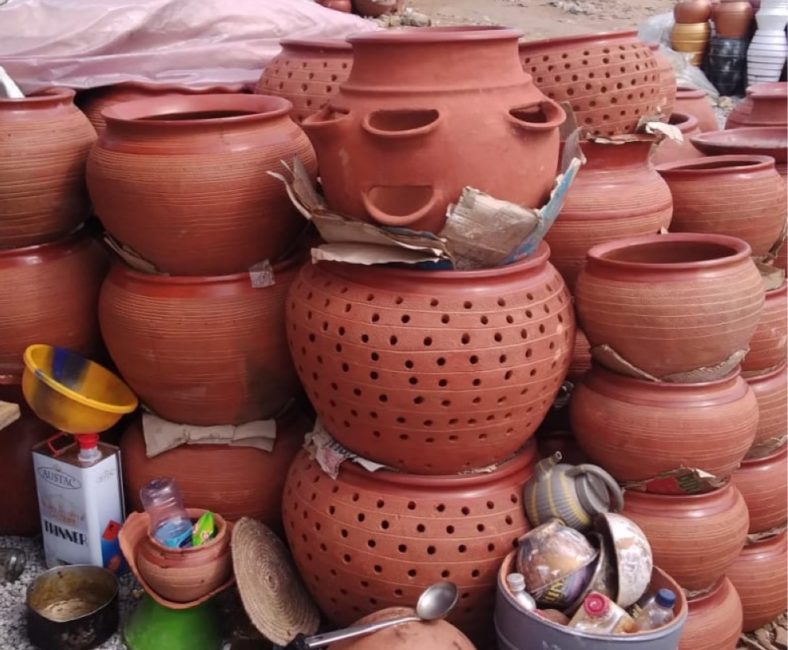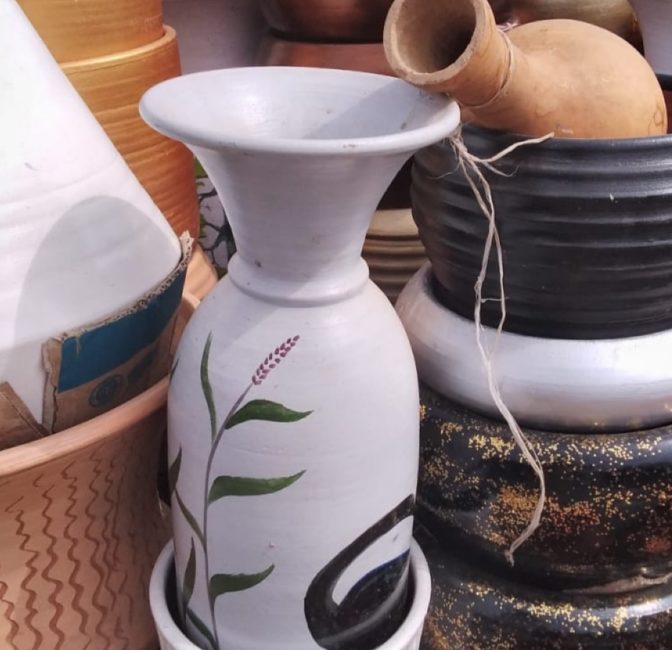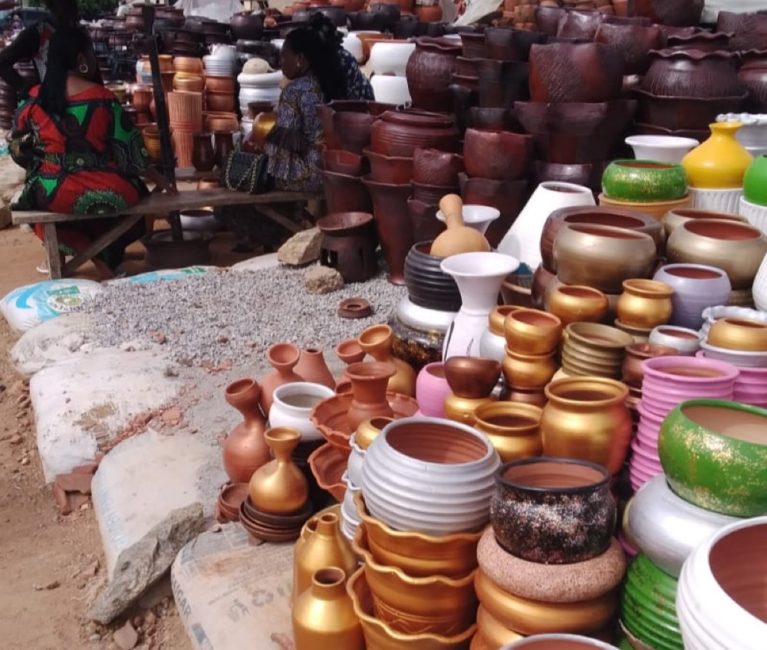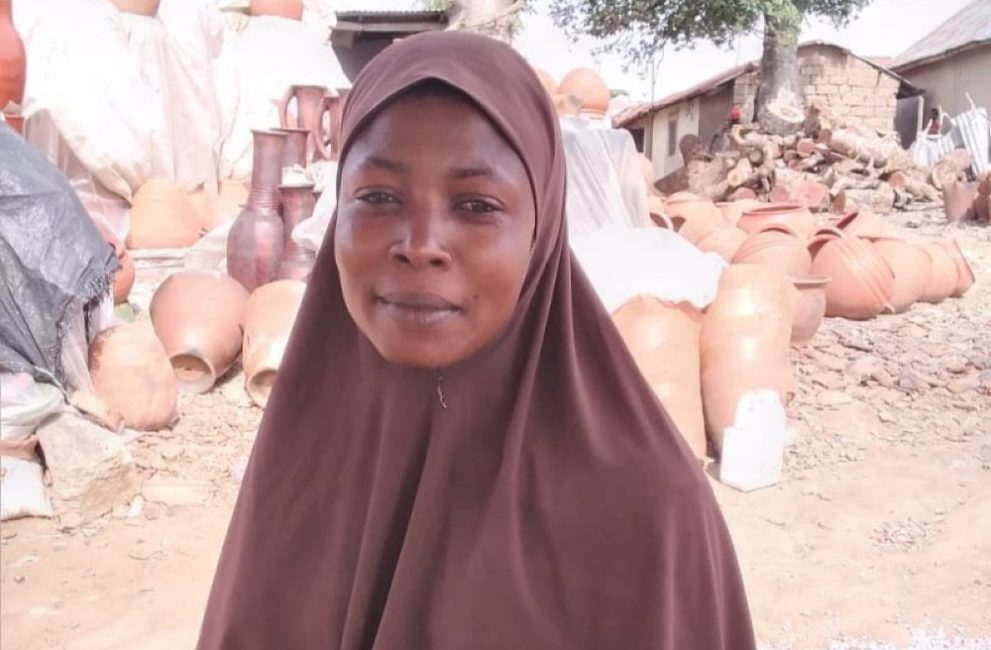The Giri Pottery Centre along the Gwagwalada Expressway In Abuja is a thriving example of how technology is changing businesses, including the business of moulding clay pots.
From producing clay pots and local saving boxes, the pottery makers have now turned to production of flower vases.
Advertisement
Amina Ibrahim, one of the traders at the centre who was born into the business, explained to THE WHISTLER the role of technology in the evolution of the ageless business.
She said the Gbagyi indigenes of the Federal Capital Territory were used to making local saving boxes (called Asusu), medicine pots and local cooking pots until recently.

She said, “But with the advent of technology and phones, our mode of production shifted to making flower vases.
Advertisement
“The idea of making flower vases first came from customers who watched other foreign Pottery productions on televisions and sought to replicate them here.
“These customers would snap pictures of vases they liked on TV and send themto us via WhatsApp to produce for them. That was how we started.
“Other customers too would buy products elsewhere and send us samples on WhatsApp to reproduce similar ones. Gradually, we started producing flower vases just to meet up with customers’ demands.
“Now we make new designs on a daily basis, and the patronage is high as you can see. See how people are coming in expensive cars to buy in bulk and take to town.”
With increasing demand in flower vases, the Giri Pottery Centre gradually shifted manual to machine production to meet sales targets.
Advertisement
However, inspite of the high demand for flower vases, the traders have not abandoned their traditional clay pot making as demand for that too has continue to rise.

“The demand for them has not reduced because many people still prefer the handmade vases because of their durability, unlike the fancy ones made of machines which are easily breakable.
“Even their level of thickness too differs. There’s also high demand for the traditional pots because we still use them for water storage and cooking,” she explained.
Explaining the history of the centre, she said they started getting recognition when they participated in a pottery competition in Kaduna and won during the Military Administration of General Ibrahim Babangida.

Advertisement
The then First Lady, Maryam Babangida, built six shops for them at Giri to shelter them from the scorching sun and rain.
“The shops were built right here at this place where we are selling our pots, but because of the dual lane construction, the shops were destroyed.
And since then, nobody has come to rebuild those shops for us. We buy umbrellas every month at the rate of N15,000.00 to make shelter,” she lamented.
But despite the increase in production, the business is suffering from non-availability of clay as they have to go as far as going behind the Giri Mountain to dig clay. They also now have to pay for the clay they dig.
“Where we dig the clay is very risky, we don’t have machines to help us dig it up. Last week a large clay fell on a lady’s head while trying to dig from underneath and died instantly.
“Without this business, we cannot survive, because we have no farm to farm again. We used to move behind that mountain to dig clay and farm but the government has confiscated the land and promised to compensate us, but we haven’t seen anything yet,” she lamented
She said all of the challenges they face and the lack of firewood to heat the clay have spiked the cost of production which has made prices of vases and other products go up.



